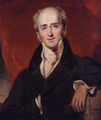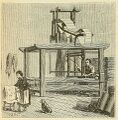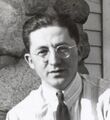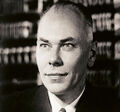Template:Selected anniversaries/March 13: Difference between revisions
No edit summary |
No edit summary |
||
| Line 61: | Line 61: | ||
||2015: Jenifer Wheildon Brown dies ... physicist and computer scientist. She is most noted for her formulation of ray tracing equations in a cold magneto-plasma, now widely known in the radio science community as Haselgrove's Equations. Pic search. | ||2015: Jenifer Wheildon Brown dies ... physicist and computer scientist. She is most noted for her formulation of ray tracing equations in a cold magneto-plasma, now widely known in the radio science community as Haselgrove's Equations. Pic search. | ||
File:Hilary Putnam.jpg|link=Hilary Putnam (nonfiction)|2016: Philosopher, mathematician, and computer scientist [[Hilary Putnam (nonfiction)|Hilary Putnam]] dies. He argued for the reality of mathematical entities, later espousing the view that mathematics is not purely logical, but "quasi-empirical". | File:Hilary Putnam.jpg|link=Hilary Putnam (nonfiction)|2016: Philosopher, mathematician, and computer scientist [[Hilary Putnam (nonfiction)|Hilary Putnam]] dies. He argued for the reality of mathematical entities, later espousing the view that mathematics is not purely logical, but "quasi-empirical". | ||
Revision as of 12:17, 13 March 2020
1764: Charles Grey, 2nd Earl Grey born. His government will see the abolition of slavery in the British Empire.
1877: Children reprogram Jacquard loom to compute new family of Gnomon algorithm functions.
1911: Mathematician Melvin Dresher (Dreszer) born. Dresher will contribute to game theory, co-developing the game theoretical model of cooperation and conflict known as the Prisoner's dilemma.
1969: Physicist, computer scientist, and APTO field engineer Howard H. Aiken publishes new class of Gnomon algorithm functions which compute and prevent crimes against mathematical constants.
2013: Tractor voted Picture of the Day by the citizens of New Minneapolis, Canada.
2016: Philosopher, mathematician, and computer scientist Hilary Putnam dies. He argued for the reality of mathematical entities, later espousing the view that mathematics is not purely logical, but "quasi-empirical".





